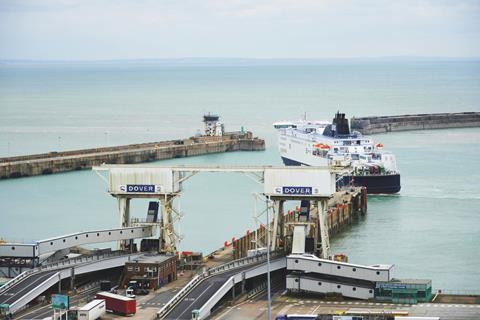Katrina Walsh highlights the role played by traders in managing the international supply chain and explains why the UK’s biosecurity depends upon the timely sharing of intelligence.
For the meat industry, there was no quiet start to the year. Once again, meat traders were faced with a new challenge to adapt to. The discovery of foot and mouth disease (FMD) in three water buffalo in Germany threw trade into a complex situation. This event highlighted the need for good communication; as we often say, “uncertainty is the worst enemy of trade”.
The German chief veterinary officer confirmed the finding on 10th January and UK Port Health Authorities were advised by Defra on the detail that day, a Friday. Goods were held at GB Border Control Posts (BCPs) on the Saturday, but there was no communication to traders about these holds until Monday 13th January.

We urge Government to view its relationship with the trade more symbiotically. By working together, with clear lines of communication, there will be benefit to all. When traders are equipped with the right information in a timely manner, it allows them to help manage unprecedented situations such as these. This was provided to BCPs, so there was no reason why it couldn’t also have been shared with trade.
Defra comms from 15th January stated: “Goods that have been held at the border as a consequence of the outbreak of FMD in Germany can be returned to Germany on a voluntary basis subject to agreement by the veterinary authorities in the EU.”
Unfortunately, there was insufficient communication between Government and the EU or member state veterinary authorities to ensure that this product would be accepted back in a timely manner and under what circumstances. This led to product passing its shelf life and ultimately being destroyed. This is the last thing that any trader wants, because of the financial, food waste and sustainability implications. Had communications by all the authorities involved been better, this could have been avoided.
Safeguarding the country’s biosecurity
Legitimate traders are as keen as anyone to protect the UK’s biosecurity and prevent the incursion of a disease or any health issues. This is because they have reputations to maintain and customer bases to satisfy and reassure. Many are also exporters and are therefore acutely aware of the devastating impact a UK disease outbreak would have on our export opportunities.
Traders are always alert to any biosecurity issues, and that is why they are concerned about the reports of illegal meat entering the country via Dover. The Dover Port Health Authority has spoken about the volumes of meat being illegally brought to the country by white van smugglers. I imagine this meat is not moved in a hygienic or cold chain-compliant manner and certainly doesn’t have the correct documentation.
This kind of illegal movement of meat undercuts legitimate traders who are complying with the BTOM regime at great financial and administrative expense. These smugglers must not be associated with legitimate businesses; their mere existence puts the reputation of legitimate meat traders at risk if they are falsely associated with them. At IMTA, we argue that when this illicit trade is referenced that ‘smugglers’ rather than ‘traders’ be the terminology used.
Meat traders such as our members play a vital role in the supply chain as outlined in our recently launched ‘Role of a Meat Trader 2025’ document. Traders have expertise in legislation surrounding customs, food hygiene, labelling and veterinary requirements. They also have in-depth international logistical expertise, and knowledge of Incoterms and contracts etc.
Find the document in full here to learn more about the important role played by traders in the supply chain.


















